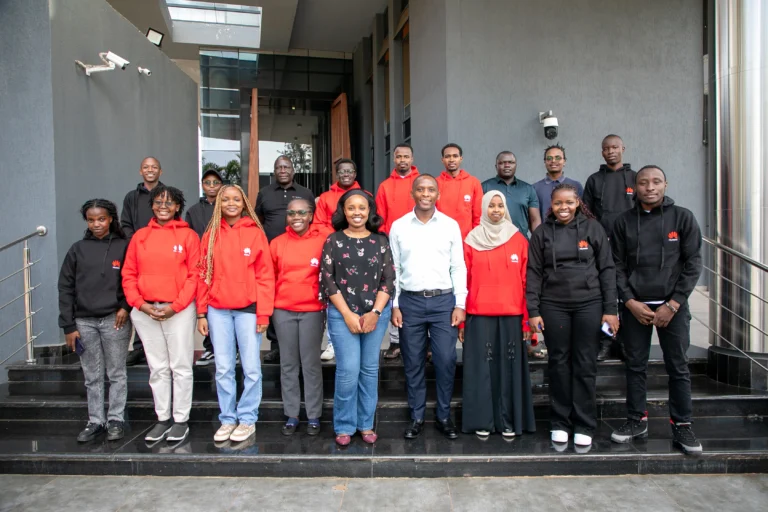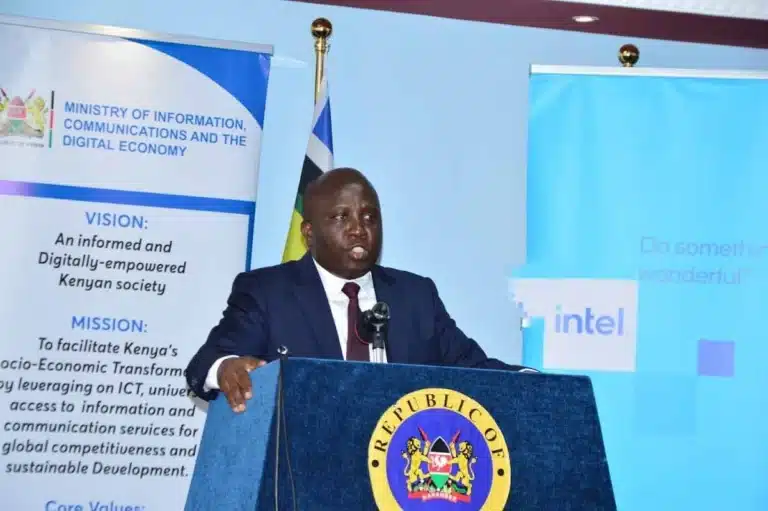OPPO Kenya has launched the OPPO A5, the latest addition to the A5 Series. After the success of the A5 Pro, the OPPO A5 brings durability, long battery life and style at an affordable price.
Let’s get into what makes this phone a game changer in its price segment.
Built for Life: Rugged Yet Beautiful
The OPPO A5 is built for real life. Whether you’re hiking, on a dusty road trip or just dealing with life’s spills and slips, this phone is ready for anything.
- IP65 Water & Dust Resistance: Rain, splashes, sand and lint.
- Military-Grade Shock Resistance: Drops and knocks.
- Double-Tempered Glass Display: Up to 160% more impact resistant than regular glass.
This is the perfect phone for outdoor lovers, students, workers or anyone who needs a phone that won’t quit.
A Battery That Goes and Goes…
One of the OPPO A5’s standout features is its 6,000mAh battery—perfect for the modern user who’s always on the go.
- 16.34 hours of YouTube streaming
- 26.6 hours of voice calls
- 450 hours of standby time
It’s not just big; it’s smart. The battery retains over 80% of its health after 1,700 charge cycles meaning it’ll last you up to 5 years without replacement.
Top it off with 45W SUPERVOOC™ Flash Charging and you’ll be ready in no time.
Smart, Fast and Effortless with ColorOS 15
Powered by ColorOS 15, the OPPO A5 adds intelligence and ease to your daily life.
- Google Gemini AI Assistant helps you stay organized and efficient.
- AI Camera Features for a smoother photo experience.
- Trinity Engine for up to 4 years of fluid system performance backed by OPPO’s 48-Month Fluency Protection certification.
Capture your world with:
- 50MP Main Camera
- 2MP Depth Camera
- 5MP Selfie Camera
- Portrait Mode and AI enhancements for those Instagram worthy shots.## Ready for Entertainment and Multitasking
Under the hood the OPPO A5 runs on the Snapdragon® 6s Gen1 4G processor with:
- Up to 8GB of RAM (expandable with OPPO’s RAM Expansion)
- Up to 256GB of storage
For gaming and streaming you’ll love:
- 1000nits Ultra Bright Display
- 300% Ultra Volume Mode for clear and loud sound
- Seamless Cellular/Wi-Fi Switching 2.0 for uninterrupted connectivity
Slim, Light and Stylish
Despite all its rugged features the OPPO A5 is sleek:
- Just 7.99mm thick
- Weighs 193g
Available in two beautiful colors:
- Aurora Green
- Mist White
Whether you’re at work, school or out with friends the A5’s design will always fit the occasion.
Pricing and Lipa Pole Pole Option
The OPPO A5 is available now across all OPPO Kenya stores and the OPPO Kenya website.
Retail Prices:
- 6GB RAM + 128GB Storage – Ksh 22,500
- 8GB RAM + 256GB Storage – Ksh 25,999
Buy Now, Pay Later (Onfon Mobile):
- 6+128 model: Deposit Ksh 4,500 + daily Ksh 110
- 8+256 model: Deposit Ksh 5,200 + daily Ksh 125
Conclusion
The OPPO A5 is not just another phone—it’s a statement of durability, performance and style all in one affordable package. Whether you need a phone that can keep up with your lifestyle or one that’s built to last the OPPO A5 is worth checking out.








